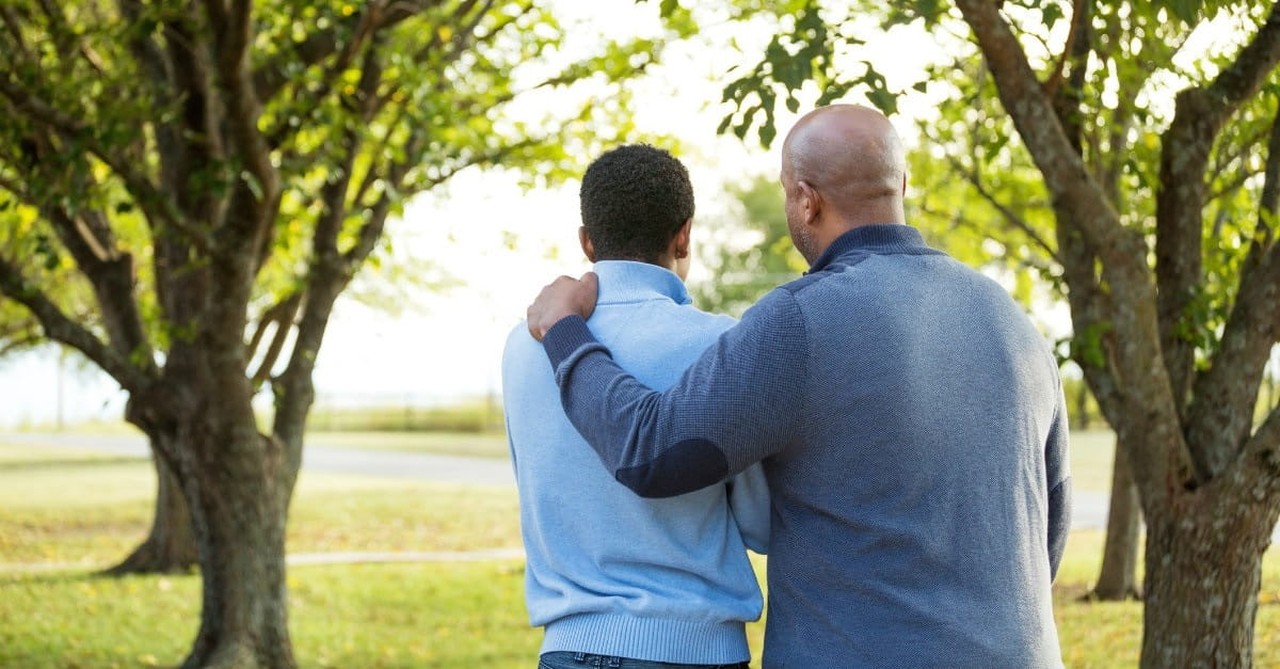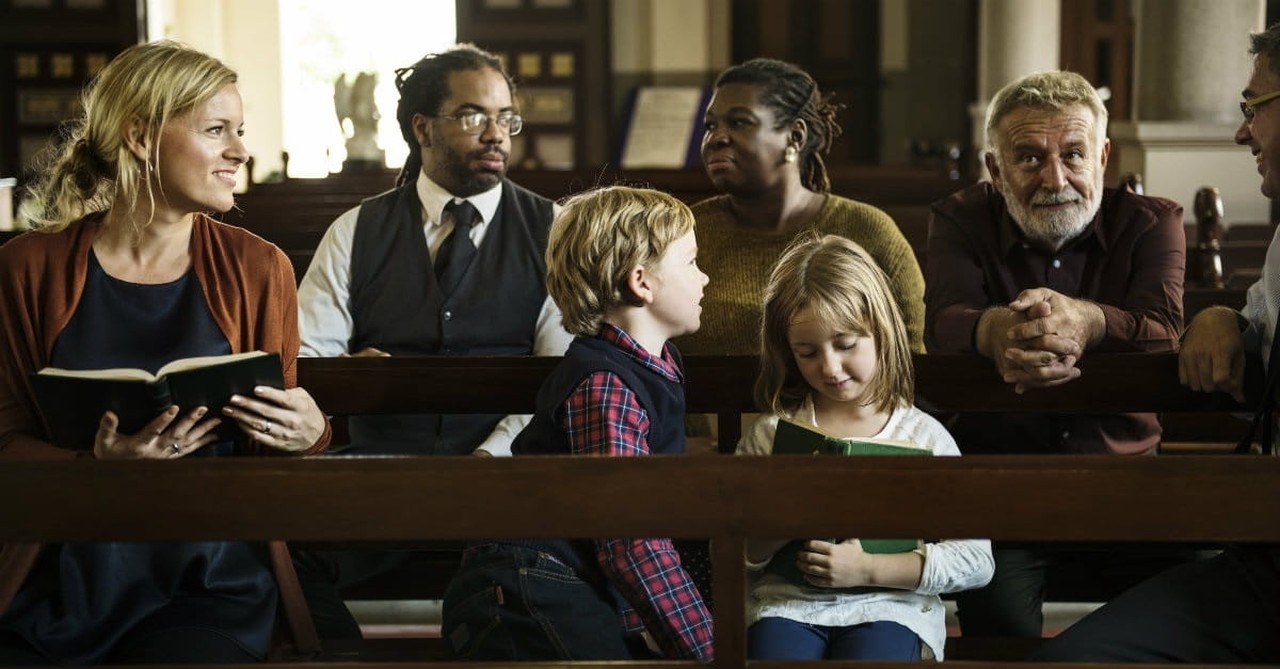No Friends at Church? 10 Questions You Should Ask Yourself

I attend a megachurch. Lots of people. But that doesn’t mean everyone feels like they belong. Many times in the past, I wondered how to reach out to those who seem so friendless in our midst. Because I don’t want to presume people struggle with friendships, it’s wise to get to know them a bit—to actually befriend them. I don’t want them to be my “project,” but rather to encourage them in their walk with the Lord.
So I’m the one to initiate contact. I smile. I’m direct. But rather than trying to “fix” the “friendless,” it’s better to ask exploratory questions that can motivate them to reflect and discover opportunities to grow on their own. When they respond, I listen carefully and respectfully.
One of Jesus’ disciples said we should always be more willing to listen than to speak (James 1:9). Our listening can give people courage to move forward in positive ways. Good questions help me affirm a person’s ability to figure out for themselves how to make friends or be a good friend.
Here are some questions we might ask those who appear to have no friends at church.
Photo credit: ©Thinkstock/Silberkorn
1. Do you want to have more friends?

1. Do you want to have more friends?
SLIDE 1 OF 10
Jesus asked a sick man, “Do you want to get well?” We might think, How silly. Of course, he wants to get well. But some people, no matter what they say, really prefer pity-parties. In the same way, people may say they want more friendships, but they secretly might not.
They may be insecure or afraid to risk relationships. They may have a difficult temperament or personality, lack experience, not know how to communicate, or have any number of relationship issues. They may simply be content to be alone.
At this point, listen for “excuses” people offer for having few friends. They might not be good excuses in your mind, but hear their reasons. It helps to know what a person thinks will hinder friendship.
Photo credit: ©Thinkstock/digitalskillet
2. What are your expectations for friendship?

2. What are your expectations for friendship?
SLIDE 2 OF 10
It’s also important to know the expectations of people who do want friends. Lonely people often had high hopes for friendships that weren’t fulfilled. “Unrelenting disappointment,” Proverbs 13:12 says, “leaves you heartsick.” Delayed or unmet expectations can make people fearful to risk new relationships.
Help the person consider expectations for friendship in a number of areas, especially emotional and spiritual expectations. Some of their expectations may be realistic and even something they need, but other expectations can be unrealistic. Friendships require patience and time to grow. Some people expect too much too soon. Some people expect a large time investment. Others expect a “best friend” scenario. But people are so different, we might not even like a person though we can obey God’s command to love them.
Ask further questions to help a person think through what they hope they’ll find in a friend. Is this something most friends could offer? Or is this a need or want only the Lord can satisfy?
Photo credit: ©Thinkstock/BananaStock
3. What characteristics would you want in a friend?

3. What characteristics would you want in a friend?
SLIDE 3 OF 10
It can be fun to help a person explore specific characteristics they’d love to have in a friend. Maybe they’ve never thought about that before.
When I thought about some of the friendships I wanted, they all started with the letter “L”! These are fairly common desires. We might need a loving friend who accepts us. Or a loyal friend who’s faithful when times get rough. Or a listening friend. Or a leaning friend who comes alongside to strengthen us. Or a laughing, joyful friend, because we all need to laugh. Or a learning friend—someone who can challenge us, speak truth into our lives, teach us, or hold us accountable. Or a lifting friend, a cheerleader and encourager.
Many times we are looking for characteristics in friends that supplement our area of weakness—much as we do in marriage! For example, a woman might struggle with depression. She needs a listening and uplifting friend!
Photo credit: ©Thinkstock/digitalskillet
4. What kinds of friends do you think God wants for you?

4. What kinds of friends do you think God wants for you?
SLIDE 4 OF 10
Sometimes what we’re looking for in a friend doesn’t resemble what God wants for us at all. That makes sense if we’re only looking at what makes us happy.
Think about the kinds of friendships that might bring the Lord joy? What kinds of relationships does God see that makes Him smile? Conversely, what kinds of relationships might make Him sad when He wants so much for us.
Christ-followers are to do all things to honor God. We are set apart to the praise of God’s glory. Bringing Him glory includes our selection and cultivation of friendships.
Photo credit: ©Thinkstock/Rawpixel
5. What kind of friend are you?

5. What kind of friend are you?
SLIDE 5 OF 10
This one can be tough if we truly can’t see our own heart. The Bible says the heart is deceitful and desperately wicked—“Who can know it?” God can. The Lord can help us understand what’s going on in our mind and heart. He knows what might be holding us back from building strong relationships.
It might be necessary to ask a person two other questions: 1) How would you describe your ability to be or make a friend? And 2) How would other people describe your ability to be or make a friend?
Prompt the person and help them see themselves better. Point out characteristics they’d like to see in others. Do they have those characteristics? Encourage honesty and only offer counsel if asked for it.
Photo credit: ©Thinkstock
6. What changes might God make to help you be a better friend?

6. What changes might God make to help you be a better friend?
SLIDE 6 OF 10
This question will help a person consider some new choices they might make to cultivate deeper friendships. I know of one woman who said she couldn’t make friends, but the truth was that she was a gossip and people didn’t trust her.
If they can’t think of any changes, offer some possibilities while trying not to get too specific, especially if you are aware of a past friendship issue they’ve had. Is there a new way of thinking they need to learn? Some new attitudes? A change of beliefs about friendship? New skill sets, habits or behaviors?
Though the church isn’t a social club, many people discover the keys to lifelong friendships as they serve the Lord together. But because all real changes begin in the mind, share Romans 12:2. God can transform our thinking—and ultimately our relationships—when we allow the Word of God and Spirit of God to saturate our mind.
Photo credit: ©Thinkstock/Jupiterimages
7. How many friends do you think you need?

7. How many friends do you think you need?
SLIDE 7 OF 10
This will differ from person to person. Some people want many friends on a more surface level. Others want fewer, but deeper relationships.
It’s been said we have four levels of friendships. 1) Acquaintances—occasional contacts. 2) Casual friendships, usually with common interests, concerns and activities. 3) Closer friendships, and for the Christian this is usually at the “fellowship” level where we meet in unity to serve or pray together. 4) Intimate, deeper friendships. This is the level of personal investment in another person’s life, with deeper honesty and accountability.
The goal isn’t to have lots of friends—there is such a thing as having too many—but rather to cultivate quality relationships. The deeper the level of friendship, the more responsibility and investment involved. This might be something a person could consider when thinking about taking on new relationships.
Photo credit: ©Thinkstock/Ingram Publishing
8. In what ways is the Lord your best friend?

8. In what ways is the Lord your best friend?
SLIDE 8 OF 10
When I finally understood how Jesus is my forever friend and I found my identity in Him, I was more confident even when alone. But I also felt more freedom in my spirit to reach out to others. I discovered as I allowed His love to change my relationships that any problems with jealousy and comparison seemed to fade away.
Encourage the seemingly friendless in your church to study the life of Jesus, the ultimate Friend. The “friend of sinners” loved us so much He died for us, chose us to be His friends, and enables us, in Him, to bear fruit in ministry (John 15:9-17).
A fun and enlightening exercise together might be to list all the ways the Lord is our “best friend.” For example: He listens, is always available, totally accepts us, is faithful and encourages us.
Photo credit: ©Thinkstock/justinkendra
9. How can I be a better friend to you?

9. How can I be a better friend to you?
SLIDE 9 OF 10
From the moment you noticed the apparently friendless person in your church, did you feel the tug of the Holy Spirit inviting you to get involved? Or did you notice and then turn away? If you turned away, ask the Lord to give you a more sensitive spirit to those who desperately need a friend.
At the appropriate time, ask, “How can I be a better friend to you?” God may not be calling you into an intimate relationship together or even a close one, but it’s always possible to step up our level of involvement as the Lord leads. Think: how can I invest in people in ways that will help them walk in wisdom or obey the “one another” passages in Scripture?
If the person offers ways you don’t measure up in the friendship role, don’t take offense. Listen, say thank you, and add, “I promise to pray about what you’ve shared.” It likely required courage for the person to share. Acknowledge that and validate them—even if you disagree with their evaluation. And ask the Lord to search your heart and reveal ways you aren’t like Jesus when it comes to friendship.
Photo credit: ©Thinkstock/william87
10. How can I help you cultivate new friendships?

10. How can I help you cultivate new friendships?
SLIDE 10 OF 10
The Lord may want you to get involved as a mentor to encourage friendship-building. He may simply want you to pray for the lonely or friendless. Or maybe there’s something you could do to help a person cultivate new friendships that you’ve never thought of before.
It doesn’t hurt to ask the person, and then ask the Lord. The writer of Hebrews encouraged us to “consider how to stir up one another to love and good works” (Hebrews 10:24).
One thing I’ve found for sure: Whenever I’ve taken the time to befriend the friendless, God used the experience to change my own heart.
Dawn Wilson and her husband Bob live in Southern California. They have two married sons and three granddaughters. Dawn assists author and radio host Nancy DeMoss Wolgemuth with research and works with various departments at Revive Our Hearts. She is the founder and director of Heart Choices Today, and also publishes LOL with God and Upgrade with Dawn and writes for Crosswalk.com. Dawn also travels with her husband in ministry with Pacesetter Global Outreach.
Photo credit: ©Thinkstock/Ridofranz
Originally published September 14, 2017.









